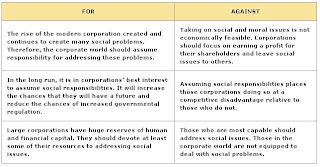Egypt Protests
History of Egyptian rulers
Because of its strategic location, both as a base for explorations in Africa, as well as the country through which the Suez Canal linking Indian to the Atlantic Ocean passes, having a control on Egypt was important since the colonial days. Although the country gained its independence in 1922, the British continued to control its politics by keeping puppet kings. Monarchy was finally overthrown in the 1952 revolution led by Gamel Abdel Nasser who established a one-party system to rule the country.
Although the freedom of the general public was restricted, Nasser, who nationalized the Suez Canal and helped in the establishment of the Non-Aligned Movement, had substantial public support. His successor, Anwar Sadat, liberalized the economy and made peace with Israel in the 1979 Camp David agreement, which resulted in Egypt's expulsion from the Arab League but established it as a liberal Arab country in the West's eyes. After his assassination in 1981, Sadat was replaced by Hosni Mubarak, who retained most of his predecessor's policies.
What triggered the protests in Egypt?
Most of the news agencies and political commentators see the recent Tunisian revolution as the most visible trigger which brought the Egyptians to streets. Since December 2010, Tunisia was witnessing a wave of protests and riots which ultimately led to the end of 23-year rule of president Zine El Abidine Ben Ali. The protesters in Egypt were waving Egyptian and Tunisian flags and shouting similar chants, saying "Down with Mubarak".
What is the main reason for the protests in Egypt?
There are various reasons. The country has been ruled by Mubarak since 1981 and since then he ruled by imposing a continuous state of emergency. The opposition blames him for transforming the country into a police state. His party has also deployed plain-clothed police, disliked by majority of the Egyptians. His unopposed rule is also seen as having contributed to the present state of corruption in the country. It is alleged that businessmen have risen to power and the well being of common people is overlooked by the ruling party. The country has witnessed a population explosion and the growing population in the cities has resulted in deteriorating living conditions, further fuelling the outrage.
What is the Muslim Brotherhood?
Experts fear that Mubarak's exit might result in the rise of the Muslim Brotherhood, an Islamic outfit formed in 1928, which although illegal has substantial support in the country. The Brotherhood is not allowed to form a political party because Egyptian law prohibits the formation of political parties on the basis of religion. Its members, however, are known publicly and their support was demonstrated when they won 88 seats in the 2005 parliamentary elections, each of them contesting as an independent.

very nice overview....
ReplyDelete